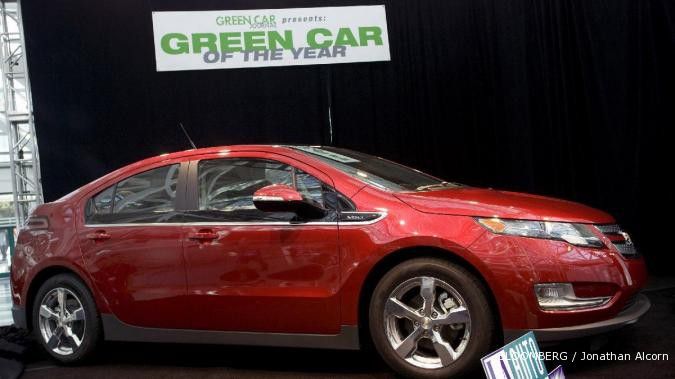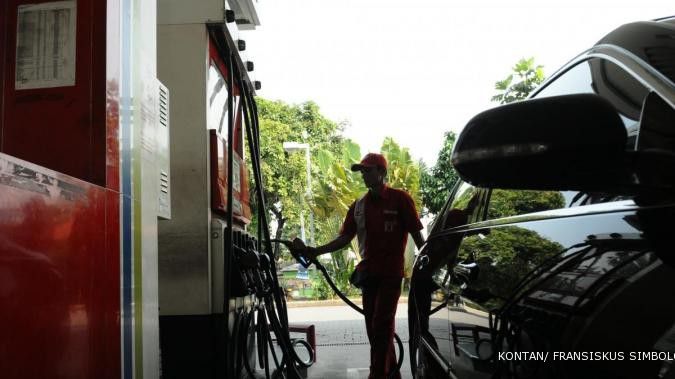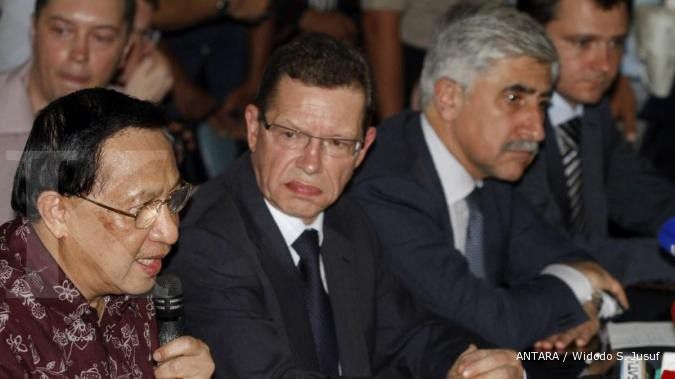JAKARTA. Sales of non-subsidized fuel in Greater Jakarta may increase up to 10 percent following a ban on government vehicles from buying subsidized fuel, according to state oil and gas firm Pertamina.
Non-subsidized fuel sales have slowed in the past five months as global oil prices caused the price of Pertamina’s non-subsidized Pertamax spike to Rp 10,200 per liter, versus subsidized Premium at Rp 4,500.
“We aim to sell 1.7 million kiloliters of Pertamax in 2012, but due to higher prices from January to May, sales haven’t reached half of the target,” Pertamina spokesperson Mochamad Harun told reporters on Monday.
“With lower global oil prices, we hope the demand for non-subsidized fuel will soar. But we have to take into account our currency. If the currency is weak, it’s difficult, then non-subsidized fuels prices may not fall,” Harun said.
In line with trends in global oil prices, Indonesian Crude Price (ICP), the main component in determining national fuel prices, tumbled to US$113.76 per barrel in May from $124.65 in April and $128.14 in March.
Pertamina sales and marketing director Hanung Budya Yuktyanta said that non-subsidized fuel sales were up 4 percent on Friday, Saturday and Sunday compared to the same days a week earlier.
The spike follows implementation of the ban on government, state enterprise and regional enterprise vehicles from buying subsidized fuel on June 1.
“We have ordered gas station operators not to allow cars with red [government-vehicle] plates, police or national army plates and special stickers to purchase subsidized Premium and diesel fuels,” Hanung said. The stickers indicate that a vehicle is not authorized to use subsidized fuel.
Pertamina would be assisted by the National Police in imposing the ban as it could not punish or take any measures against violators, he added.
BPH Migas member Ibrahim Hasyim said that the downstream oil and gas authority would complete distribution of the special stickers to all government institutions and state and regional enterprises in Greater Jakarta this week.
“The supervisory body at each institution will also start working. Thus, starting from June 1, if payment receipts are not for buying non-subsidized fuels, the money won’t be reimbursed,” Ibrahim said.
“We will monitor the implementation and periodically evaluate it. If there are some problems, we will try to find solutions as soon as possible,” he added.
The Energy and Mineral Resources Ministry calculated earlier that the ban would cut subsidized-fuel consumption by 135,000 kiloliters this year. (Rangga D. Fadillah/ The Jakarta Post)
Non-subsidized fuel sales may jump 10 percent
June 05, 2012, 09.24 AM
/2012/06/05/2086621974p.jpg)
ILUSTRASI. Simak prosedur terbaru pelaksanaan CAT BKN untuk seleksi CPNS tahun 2021. ANTARA FOTO/Nova Wahyudi/hp.
Reporter: Edy Can
| Editor: Edy Can
Latest News
-
February 07, 2026, 05.13 PM
Indonesia-Australia Relations: Booming Business, Golden Opportunities for Investors
-
February 07, 2026, 04.59 PM
Indonesian Comedian Summoned by Police Over Netflix Show
-
February 07, 2026, 05.57 AM
GLOBAL MARKETS-Stocks, Bitcoin Rally, Regaining Some Lost Ground with Precious Metals
-
February 06, 2026, 07.58 AM
Indonesian Markets Face More Pressure after Moody's Cuts Outlook
-
February 05, 2026, 07.19 PM
Moody's Cuts Indonesia's Sovereign Rating Outlook to Negative
-
February 05, 2026, 02.43 PM
Indonesia Posts Fastest Economic Growth Rate in Three Years
-
February 04, 2026, 04.38 PM
Indonesia's Tax Revenues Jump in January, Finance Minister Says
-
February 04, 2026, 03.34 PM
AUD 1.6 Trillion Australian Pension Funds Ready to Pour into Indonesia
-
February 04, 2026, 02.13 PM
Indonesian Miners Halt Spot Coal Exports Over Proposal to Cut Output












